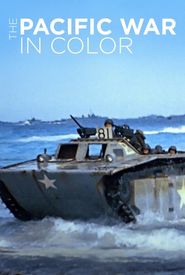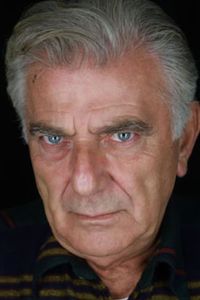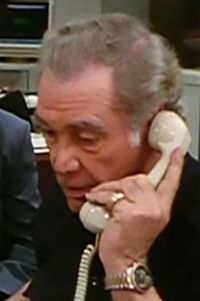Curtis LeMay, a renowned and illustrious United States Air Force general, whose impressive military career and innovative strategic thinking had a profound impact on the outcome of World War II, as he played a pivotal role in the conception and execution of the strategic bombing campaign against Japan, a groundbreaking initiative that significantly accelerated the war's conclusion, ultimately contributing to the Allied victory.
Noted aviator and military officer, Curtis Emerson LeMay, was born and raised in the vibrant city of Columbus, Ohio, where he spent his formative years developing the skills and values that would shape his future endeavors.
Upon completing his secondary education, LeMay took the next step in his academic journey by enrolling in the esteemed Reserve Officers' Training Corps (ROTC) program at Ohio State University.
This rigorous training, designed to prepare young men for leadership roles in the military, pushed LeMay to his limits, testing his physical and mental endurance, as well as his ability to work well under pressure.
Ultimately, LeMay's hard work and dedication paid off, as he was commissioned as a second lieutenant in the United States Army Air Corps in 1930, marking the beginning of a long and illustrious career in the military.
LeMay, a seasoned aviator, embarked on a pivotal career shift in 1937, leaving behind his initial experience in fighter aircraft to pursue a new path in bombers. This strategic transition enabled him to hone his exceptional skills in bombing tactics and strategies, ultimately cementing his reputation as a highly accomplished and forward-thinking pilot.
The remarkable military career of Curtis LeMay, a stalwart figure of World War II, was characterized by a succession of esteemed postings and achievements, commencing with his tenure as a lieutenant colonel in the Eighth Air Force, where he played a pivotal role in the European theater, laying the groundwork for a legacy that would be forever etched in the annals of military history.
LeMay's remarkable leadership abilities, evident during his tenure as commander of the 305th Bomber Group, precipitated a swift ascent up the military ranks, ultimately culminating in his appointment as commander of the XXI Bomber Command in the Pacific Theater, where he would go on to wield significant influence and authority.
Curiously, Curtis Emerson LeMay, a highly distinguished military leader, took on the crucial responsibility of directing the complex operations of B-29 bombers in their pivotal campaign against Japan.
This extensive military operation, comprising strategically planned and precisely executed bombing missions, had a profound and far-reaching impact, ultimately leading to the utter devastation and ruin of a staggering 60 Japanese cities, with the country's capital city, Tokyo, being among the most severely affected areas.
The calamitous consequences of this military campaign were nothing short of devastating, with eyewitness accounts and statistical projections converging to suggest that it exacted a heartbreaking human cost, resulting in the untimely demise of more than one million innocent Japanese civilians, whose lives were tragically cut short, leaving an indelible mark on the war-ravaged nation, whose collective psyche was forever altered by the sheer scale of the devastation and loss of life.
Following the conclusion of the war, Curtis LeMay was reassigned to the Pentagon, where he remained for a brief period before being dispatched back to Europe in 1947 to assume command of the United States Air Force-Europe (USAFE),a prestigious organization responsible for overseeing the air operations of the United States military in the European theatre.
In the subsequent year, 1948, he was entrusted with the crucial role of Chief of Operations for the Berlin Airlift, a monumental endeavor aimed at resupplying the besieged city of West Berlin during the Soviet Union's blockade, a critical period in the Cold War era.
After successfully overseeing this operation, LeMay was transferred back to the United States and appointed as the commander of the Strategic Air Command (SAC),with the responsibility of transforming it into a formidable force capable of waging a nuclear war, a role that would shape the course of military strategy and policy for the next decade.
He held this position for a decade, until 1957, when he was promoted to the rank of Vice Chief of Staff of the United States Air Force, a position that further solidified his influence and authority within the military hierarchy.
Nine years later, in 1961, LeMay rose to the pinnacle of his career, being appointed as the Chief of Staff of the United States Air Force, the highest rank and most prestigious position within the organization, a testament to his dedication, leadership, and strategic vision.
Curtis LeMay's illustrious military career, marked by numerous battlefield triumphs, was unfortunately tarnished by his contentious demeanor and far-right political beliefs, which frequently generated friction with his comrades-in-arms and civilian acquaintances. As a passionate advocate for the strategic deployment of nuclear weapons, LeMay's viewpoints frequently clashed with those of President John F. Kennedy during the Cuban Missile Crisis, as he vehemently urged the President to launch a nuclear assault on Cuba and the Soviet Union.
In addition, LeMay was a vocal proponent of the Vietnam War, ardently advocating for an escalation of bombing campaigns against North Vietnam, Laos, and Cambodia, which ultimately led to the devastating loss of tens of thousands of civilian lives.
As LeMay's illustrious military career began to wind down in the year 1965, he set his sights on a new and uncharted territory, one that would lead him down a perilous and complex path, replete with the swirling eddies of radical right-wing politics. This newfound journey, fraught with uncertainty and tension, was precipitated by a significant nod of approval from none other than George Wallace, the former governor of Alabama, who deemed LeMay a worthy running mate in his presidential bid for the year 1968.
The initial euphoria surrounding LeMay's ticket quickly turned sour as his outspoken nature and penchant for controversy began to wreak havoc on the campaign. His bombastic assertion that he was unafraid of nuclear war sent seismic shockwaves throughout the political sphere, generating a maelstrom of negative publicity that irreparably damaged the campaign's prospects. This catastrophic gaffe ultimately sealed the fate of the ticket, leading to a crushing defeat that left supporters reeling and opponents triumphant.
After the conclusion of the Wallace presidential campaign, General Curtis LeMay continued to be deeply involved in far-right political pursuits, penning a string of influential publications that forcefully denounced the alleged widespread impact of radical left-wing ideologues and liberal thinkers on American society, his words serving as a clarion call to action for like-minded individuals who shared his concerns about the perceived erosion of traditional values and the supposed threat posed by progressive ideologies.














